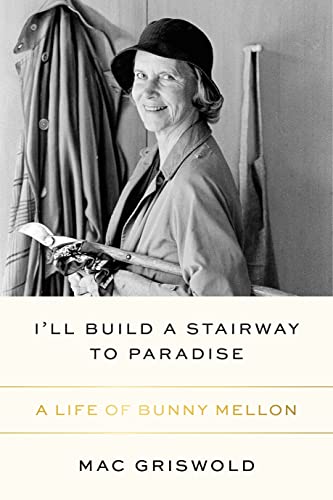Description
The story of Bunny Mellon, the great landscape and interior designer, becomes a revelatory exploration of extreme wealth in the American century.
Bunny Mellon, whose life was marked by astonishing good fortune as well as tragedy and scandal, remains a singular figure in the annals of American design. She had her finger on the pulse of American culture and possessed a rare, once-in-a-generation sense of style and grace. Her most celebrated work--the White House Rose Garden, designed during the presidency of John F. Kennedy--demonstrated how formal restraint and the sparing use of color could be deployed to maximal effect. Later, her understated landscape design for the Kennedy gravesite at Arlington National Cemetery changed the face of American public memorials. A famously private person, many of Mellon's greatest achievements remained concealed from public view. Her rarely seen gardens and domestic interiors at eight different properties on three continents became legends and models. At Oak Spring Farm in Virginia, the bibliographic riches of her Garden Library were twinned with the expansive flowering gardens lying below the Edward Larrabee Barnes-designed building. At her home on Nantucket, she pruned back the landscape to reveal the elemental forms of nature. Mellon also ranked as one of the great art collectors of her era, encouraging her husband Paul to use his family's vast wealth to acquire hundreds of nineteenth century French paintings, many of which were donated to the National Gallery of Art. Her own tastes ranged from Mark Rothko to Richard Diebenkorn--in quantity. In I'll Build a Stairway to Paradise, Mac Griswold--who knew Mellon personally--delves into her subject's closely-guarded personal archives to construct an unrivaled portrait of a woman as complex and multifaceted as the gardens and homes on which she left her mark. This book explores the tension between Mellon's idea of herself as a "poor little rich girl" and her own enterprising spirit. Mellon tested the anodyne 1950s model of woman as-wife-as-mother by getting a divorce, admitting candidly to her first husband that she wanted a richer one. She imperiously traded old friends for new, and ultimately used her reputation, her connections, and above all her money to help fund John Edwards's short-lived presidential campaign. She led an American version of a royal court that, over the years, included Jackie Kennedy, Hubert de Givenchy, and I.M. Pei. How Mellon's character, style, and taste developed together to produce her greatest accomplishments--private and public--is the real subject of this biography.
